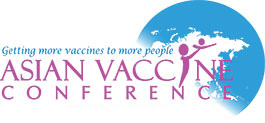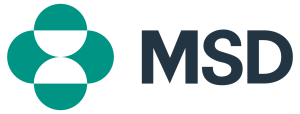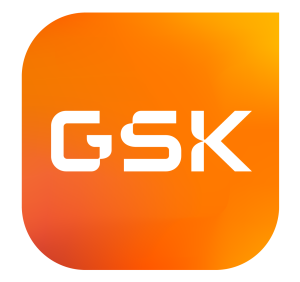Satellite Symposia
|
Title |
Fireside Chat: Asia-Pacific in Action, Revitalized emphasis on National Influenza Vaccination Programs
|
||||||
Details |
Date: November 8, 2023
Time: 18:35 – 19:20H |
||||||
|
Synopsis |
Vaccination remains the most effective countermeasure against morbidity and mortality caused by influenza virus, but national programs and policies differ by region, financial capacity, and immunization strengths. Population ageing, socioeconomic, and political contexts contribute to the diversity of health system infrastructures. Adult vaccination rates in the Asia-Pacific region are suboptimal, necessitating a strong commitment to improving adult vaccination rates. A life course approach to vaccination, concentrating on disease prevention and resolving barriers to vaccination, should be incorporated into health promotion strategies. A collaborative approach with a renewed emphasis on redesigning, rebuilding, monitoring, and evaluating influenza immunization programs in the Asia Pacific can increase public receptivity and demand for adult immunization by increasing targeted communication for older adults and healthcare professionals, supporting multidisciplinary and cross-sectoral coordination, encouraging political commitment, and constructing robust data to inform policies and programs.
References: 1. Seasonal influenza vaccines: an overview for decision-makers. Geneva: World Health Organization; 2020. Licence: CC BY-NC-SA 3.0 IGO. 2. El Guerche-Séblain, C., Caini, S., Paget, J. et al. Epidemiology and timing of seasonal influenza epidemics in the Asia-Pacific region, 2010–2017: implications for influenza vaccination programs. BMC Public Health 19, 331 (2019). https://doi.org/10.1186/s12889-019-6647-y 3. Cowling, B.J., Caini, S., Chotpitayasunondh, T., Djauzi, S., Gatchalan, S.R., Huang, Q.S., Koul, P.A., Lee, P.I., Muttalif, A.R., Plotkin, S. Influenza in the Asia-Pacific region: Findings and recommendations from the Global Influenza Initiative. Vaccin 2017: 35(6), 856-864 4. Kathleen F. Morales, David W. Brown, et al,Seasonal influenza vaccination policies in the 194 WHO Member States: The evolution of globalinfluenza pandemic preparedness and the challenge of sustaining equitable vaccine access, Vaccine 2021, DOI: doi.org/10.1016/j.jvacx.2021.100097. 5. Stancu Andra, Khan Anusheh, Barratt Jane, Driving the life course approach to vaccination through the lens of key global agendas. Frontiers in Aging,2023, DOI=10.3389/fragi.2023.1200397 6. APEC Action Plan on Vaccination Across the Life Course |
||||||
|
Objectives |
Strengthen Regional and Country action towards Influenza Immunization Programs To raise urgency on burden of influenza disease and its complications To drive Stakeholder synergies to implement or enhance current influenza vaccination programs public settings To facilitate best practice Sharing : Recommendations to Policies and Programs |
||||||
|
Faculty |
 |
Dr. Rontgene Solante, PH Clinical Assistant Professor 1, Department of Medicine , College of Medicine, University of the East Ramon Magsaysay Memorial Medical Center National President, Philippine College of Physicians Convenor, Raise Coalition Philippine Foundation for Vaccination |
|||||
 |
Prof. Dr. Maw Pin Tan, MY Professor of Geriatric Medicine at the University of Malaya President of the Malaysian Society of Geriatric Medicine Honorary General Secretary of the College of Physicians of Malaysia |
||||||
 |
Dr. Alex Richard Cook, SG Vice Dean (Research) Vice Dean (Research) and Domain Leader (Biostatistics & Modelling), NUS Saw Swee Hock School of Public Health (Primary) Associate Professor at the Department of Statistics and Applied Probability, NUS Yong Loo Lin School of Medicine, and the Program in Health Services and Systems Research at the Duke-NUS Graduate Medical School Singapore (Joint) |
||||||
|
Schedule |
Time | Description/Title | |||||
|
|||||||
| Title | Advancing Dengue Control: Clinical Management and Vaccination
|
||
| Details |
Date: November 9, 2023 Time: 12:20 – 13:30H |
||
| Synopsis | Dengue remains a significant public health concern worldwide, causing widespread morbidity and mortality. This symposium, “Advancing Dengue Control: Clinical Management and Vaccination,” seeks to bring together experts and stakeholders to explore comprehensive strategies in the fight against dengue. Through two informative talks and a subsequent Q&A session, the symposium aims to address the latest advancements in clinical management of dengue and the role of vaccination as a powerful tool in integrated dengue control. | ||
|
Objectives |
1. To provide a current overview of dengue fever’s global impact, highlighting its prevalence, transmission dynamics, and the challenges it poses to healthcare systems. 2. To discuss clinical management strategies, including latest developments in dengue vaccines, including the safety and efficacy of TAK-003, Takeda’s tetravalent dengue vaccine candidate. 3. To foster knowledge exchange and collaboration among healthcare professionals, researchers, policymakers, and public health experts, with the aim of enhancing dengue control efforts on a global scale. 4. To engage the symposium audience through a dynamic Q&A session with the panel of speakers, enabling participants to seek clarifications, share insights, and discuss critical issues related to dengue control and prevention. |
||
|
Schedule |
Time | Description/Title | |
| 12:20H | Introduction | Dr Choo Beng Goh | |
| 12:25H | Navigating Dengue: Enhancing Clinical Management Strategies | Dr Rontgene Solante | |
| 12:45H | Vaccination as a Powerful Shield: Preventing Dengue Disease | Dr Alberta Di Pasquale | |
| 13:05H | Panel Q&A | Panel | |
|
Faculty |
[Speaker photo] | [Speaker Name, Country]
[Speaker’s bio] |
|
|
|
Dr Rontgene Solante President, Philippine College of Physicians Dr. Rontgene M. Solante has played integral roles in advancing healthcare and infectious disease control in the Philippines. As the former treasurer of the PCP Board of Regents and Regent of PCP’s Committee on Accreditation, he has demonstrated his commitment to the healthcare needs of Filipinos. Dr. Solante’s extensive contributions extend to his role as the President of the Philippine Society for Microbiology and Infectious Disease (PSMID) from 2011 to 2012, where he worked to combat infectious diseases in the country. Currently, he chairs several committees, including those related to media and communication, standards of care in tuberculosis, and infection control. In addition to his leadership within PSMID, Dr. Solante serves as Chairperson of the Section of Infectious Disease and Committee on Infection Control at Medical Center Manila, Chair of the Adult Infectious Diseases and Tropical Medicine Fellowship Program at San Lazaro Hospital, and Co-Chair of the Standards of Care Subcommittee on Sexually Transmitted Infections, among others. Concurrently, Dr. Solante dedicates his expertise as an Assistant Clinical Professor of the Department of Medicine at the University of the East Ramon Magsaysay Memorial Medical Center (UERMMMC). |
||
|
|
Dr Alberta Di Pasquale Regional Medical Affairs Head, Vaccines Growth & Emerging Markets Takeda Dr. Alberta Di Pasquale is a distinguished Vaccinology expert with over two decades of experience. She currently serves as a Visiting Professor of Vaccinology at the University of Antwerp, Belgium. She has supported new vaccine introductions with scientific and educational activities across many infectious disease and target age groups. This includes awareness and action efforts on modern vaccines, new technologies, vaccine confidence and the life-course immunization. She is presently the Regional Medical Affairs Head Vaccines for Growth and Emerging Markets (GEM) at Takeda Pharmaceuticals International AG Singapore Branch, where she continues to shape the landscape of vaccine science on a global scale. |
||
|
|
Dr Choo Beng Goh Head of Medical Affairs India-Southeast Asia Takeda Dr Choo-Beng Goh is currently the Head of Medical Affairs, India and South East Asia, Takeda Pharmaceuticals (Asia Pacific) Pte Ltd. Prior to this he was heading medical affairs for Asia Pacific at Takeda. He has more than fifteen years of experience with pharmaceuticals and vaccine medical affairs as well as clinical development having worked in Singapore, Taiwan and the United Kingdom with GSK and Takeda. A trained clinical oncologist, he is passionate about medical affairs and building high performing medical teams. Dengue will be the second vaccine launch after his experience with the GSK human papillomavirus vaccine. Exploring healthcare partnerships and innovative financing models are of his keen interest as well as working towards an Access First strategy for many of Takeda’s current portfolio assets. |
||
|
Title |
Trends in pneumococcal diseases and prevention strategy in the AP region
|
||
| Details |
Date: November 9, 2023 Time: 18:10 – 18:55H |
||
|
Synopsis |
The MSD symposium will provide updated information about pneumococcal diseases and prevention in the Asia Pacific region. It will summarise changes of pneumococcal disease epidemiology and will highlight the importance of emerging serotype 3 related diseases in AP region. It will also introduce strategies in pneumococcal disease prevention in the era of novel pneumococcal vaccines. |
||
| Objectives |
|
||
|
Faculty |
|
Lulu Bravo, Philippines
Lulu Bravo is a Professor Emeritus at the College of Medicine, University of the Philippines Manila. She is the former Vice Chancellor for Research and Executive Director of the National Institutes of Health, University of the Philippines Manila (2005 – 2011) and current head of the Vaccine Study Group of the NIH – UPM. She is the President of the Immunization Partners in Asia Pacific (IPAP), current Executive Director and past President of the International Society of Tropical Pediatrics (ISTP) 2008 – 2011, past Chair and Founder of the Asian Strategic Alliance for Pneumococcal Disease Prevention (ASAP) 2007 – 2011, and Executive Director, Sec-General (1998 – 2006) & past President of the Asian Society for Pediatric Infectious Disease (ASPID) 2006 – 2008. She has served in various capacities in many other Asian medical and professional societies and as WHO Technical Advisor. She has served as well in national medical organizations such as PMA, PPS, PIDPS, PSMID and the Philippine Foundation for Vaccination (PFV) of which she is the founding President and current Executive Director. In the international scene, she is a member of the Rota Council, Pneumococcal Awareness Council of Experts (PACE) and member of the Dengue Vaccine Initiative (DVI). Her work has earned for her various national and international honors and awards in the professional, academic and research fields, including the Outstanding Physician (2009) and the prestigious Dr. Jose P. Rizal Memorial Award for Academe (2011) given by Philippine Medical Association, the 2012 Asian Outstanding Pediatrician Award given by the Asia Pacific Pediatric Association and 2018 Outstanding Professional in Medicine given by the Professional Regulation Commission of the Philippines. In 2008, she presented both written and oral evidence to the UK’s House of Commons to justify the $ 2.5 Billion vaccination advance market commitment to provide needed vaccines for the developing world. She was named Pneumonia Fighter in 2018 by the JustActions Organization, a US-based advocacy movement and corporation associated with People Empowerment. Dr. Lulu Bravo completed her MD, pediatric residency and subspecialty training in infectious disease at Philippine General Hospital-College of Medicine of the University of the Philippines Manila. She supplemented her fellowship in pediatric infectious disease at the University of Texas Southwestern Health Science Center in Dallas, USA in 1986. She has published more than 100 scientific articles, books and book chapters in both local and international circles. |
|
|
|
Kam Lun Ellis Hon, Hong Kong, SAR, China Dr. Ellis Hon is (1) Consultant at the CUHK Medical Centre, (2) Professor of Practice/Clinical Professional Consultant, Department of Paediatrics, and (3) Director, CCTCM Institute of Chinese Medicine, The Chinese University of Hong Kong. He received undergraduate medical education at the University of Western Australia. He is a Fellow of the American Academy of Pediatricians (FAAP) and Fellow of Critical Care Medicine (FCCM). He received his Doctor of Medicine (MD) at the Chinese University of Hong Kong. He is the President of the Hong Kong Society of Paediatric Respirology and Allergy, Vice President of the Hong Kong Paediatric and Adolescent dermatology Society. He has authored and co-authored nearly 500 peer-reviewed scientific papers, books and book chapters. He has performed extensive research on atopic diseases, traditional Chinese medicine and many paediatric critical care and health issues. He is particularly keen to promote health in children + their family and educate parents to dismiss a lot of myths and fallacies that hinder good child health in Hong Kong. |
||
 |
Jin Oh Kim, MSD Asia Pacific Region Jin Oh Kim is Regional Director of Medical Affairs (RDMA) in the MSD Asia-Pacific region. Since 2017, he has been responsible for diverse vaccines in AP region including pneumococcal, HPV, rotavirus, varicella, zoster, MMR, hepatitis, and so on. More recently, he has primarily worked on new pneumococcal vaccines, PCV15 and V116. He graduated from the School of Medicine in Kyungpook National University, Daegu, Korea in 1999 and received his master’s and PhD in immunology from the same school. He has done a postdoctoral fellowship in the division of rheumatology, University of Washington, USA, between 2007 and 2010. His main research topics during his postdoc fellow period were autoimmune diseases such as lupus and rheumatoid arthritis. He worked in the Medical Affairs department in UCB Korea (2010-2012) and MSD Korea (2012-2016) and moved to MSD Asia-Pacific region as RDMA of vaccines in 2017. |
||
|
Schedule |
Time | Description/Title | |
| 18:10H | Welcome and introductions | Lulu Bravo | |
| 18:15H | Emerging burden of ST3 and challenges in prevention | Kam Lun Ellis Hon | |
| 18:35H | Pneumococcal prevention strategy in the era of novel PCV vaccines | Jin Oh Kim | |
| 18:50H | Panel discussion and Q&A | All faculty | |
| 18:55H | Closing | Lulu Bravo | |
| Title | Novavax, from small biotech to the world stage. Development of a protein-based COVID-19 vaccine from Pandemic to Endemic use.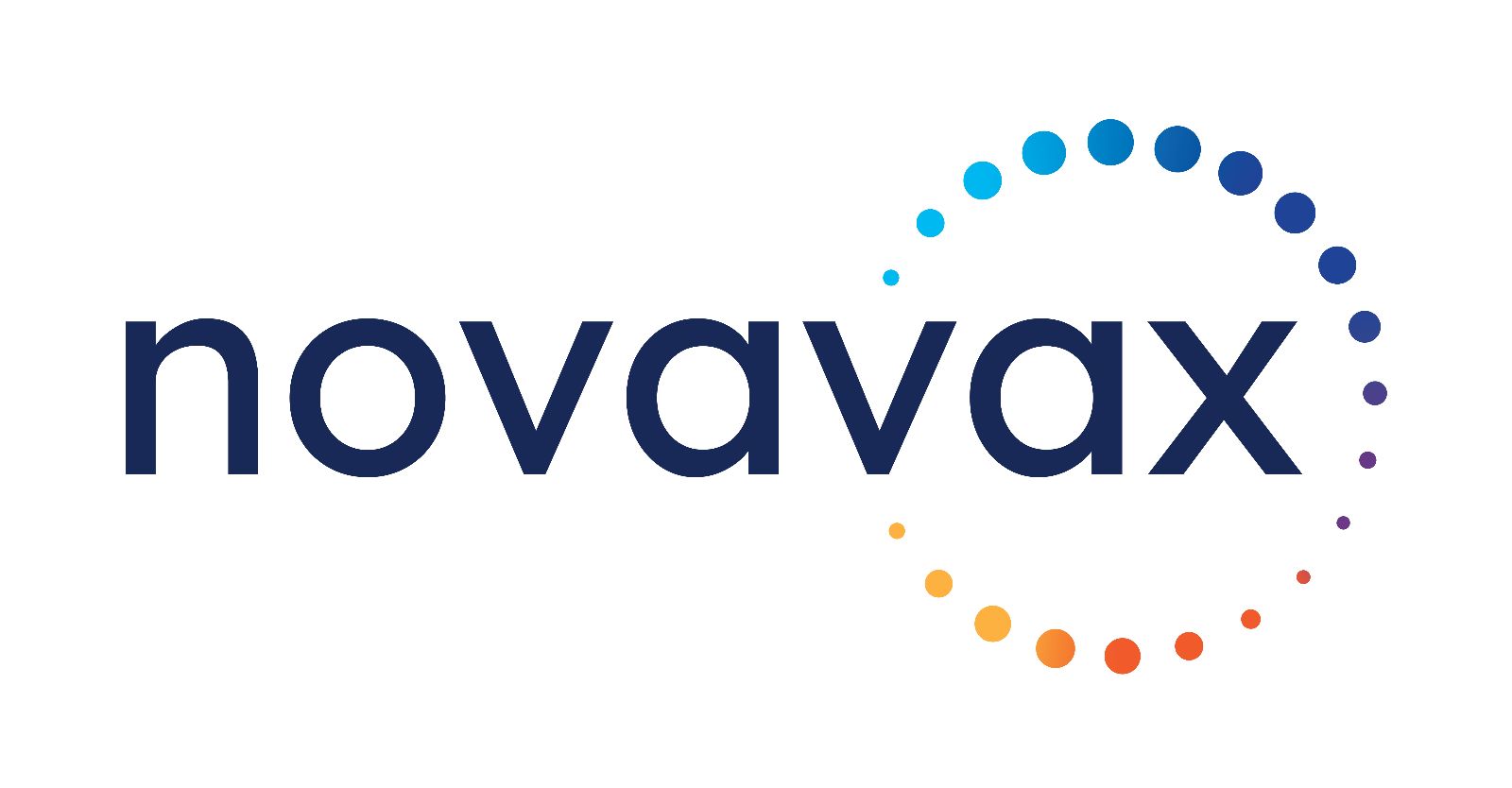 |
||
| Details | Date: November 10, 2023 Time: 8:30 – 9:15H |
||
| Synopsis | The Novavax Symposium will review the Clinical Development Programme of Novavax’s Covid19 vaccine (Nuvaxovid) including the latest development of the monovalent XBB1.5 vaccine, the latest paediatric data, an update of safety data, and the Novavax future pipeline. |
||
| Objectives | Inform participants of the Novavax clinical development program since the start of the COVID-19 pandemic. | ||
| Faculty | 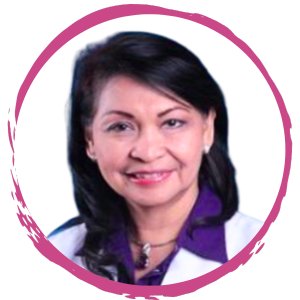 |
Professor Emeritus Lulu C. Bravo, MD, FPPS, FPSMID, FPIDSP, Philippines
Lulu Bravo is a Professor Emeritus at the College of Medicine, University of the Philippines Manila. She is the former Vice Chancellor for Research and Executive Director of the National Institutes of Health, University of the (Session chair) |
|
 |
Dr. Seth Toback, MD, USA.
Dr. Toback is currently a Senior Vice President of Medical Affairs at Novavax. He has worked in the pharmaceutical and biotechnology fields for the past ~20 years focusing on vaccines and therapeutics against respiratory viruses. |
||
 |
Dr. Matthew Rousculp, PhD, MPH, USA
Matthew is Vice President, RWE at Novavax (a biotech company committed to help address serious infectious diseases). He has over 20 years of industry experience in bio-pharma, with the majority of his experience in Global and U.S. |
||
| Schedule | Time | Description/Title | |
| 8:30H | Chairperson Introduction – Prof Emeritus Lulu C. Bravo | 5 mins | |
| 8:35H | Background to the Novavax development program during the pandemic and an update of current data – Dr Seth Toback | 20 mins | |
| 8:55H | Update on safety data and the Novavax pipeline – Dr Matthew Rousculp | 15 mins | |
| 9:10H | Q & A moderated by Prof. Lulu | 5 mins | |
|
Title |
Beyond the pandemic: The future potential of mRNA vaccines
|
||
| Details | Date: November 10, 2023 Time: 12:20 – 14:00H |
||
|
Synopsis |
Knowledge gained from mRNA technology used to combat COVID-19 is supporting the development of new medicines to fight existing diseases and future pandemic threats. A key benefit of mRNA vaccines is the speed of their development and ability to rapidly update in response to emerging variants. Join us to hear about the latest advancements in mRNA platform technology and vaccine development, and have your questions answered by global vaccine experts. |
||
|
Objectives |
Learn about:
· The application and benefits of mRNA platform technology for vaccines and therapeutics · Moderna’s respiratory disease vaccine pipeline · The changing landscape of COVID-19 and importance of strain-matched booster doses for continued protection |
||
|
Faculty |
|
Professor Anna Ong-Lim MD, FPPS FPIDSP FIDSA, Philippines Prof. Ong-Lim is a Professor and Chief of the Division of Infectious and Tropical Disease in Pediatrics at the University of Philippines and Philippine General Hospital (UP-PGH). She has been at the forefront of Philippines’ COVID-19 management efforts and serves as a member of the DOH Technical Advisory Group, the IATF Technical Working Group on COVID-19 vaccines and the Interim National Immunization Technical Advisory Group for COVID-19 vaccines. Prof. Ong-Lim is extensively involved in clinical trials for paediatric vaccines against measles, mumps, rubella, polio, pneumococcal disease and influenza. |
|
|
|
Dr Christopher Clarke, PhD, Australia Dr. Clarke is Director of Scientific Leadership, Asia Pacific at Moderna. He has >13 years of vaccines industry experience and has participated in vaccine development to support the launch and implementation of influenza, pneumococcal and herpes zoster vaccines into National Immunisation Programs in Australia and across the world. Dr Clarke was previously an academic, researching immunological and molecular mechanisms linking innate and adaptive immunity, particularly in the context of viral infections and cancer. He completed his PhD degree at the Imperial College School of Medicine, London. |
||
|
|
Professor Sir Jonathan Stafford Sir Jonathan is a world-renowned expert in public health and epidemiology, specialising in influenza and respiratory viruses. He was an Associate Professor at the University of Nottingham and a Consultant Regional Epidemiologist at the Public Health Laboratory Service.Sir Jonathan has held key positions within the UK government, spearheading efforts to combat the influenza pandemic and other emerging viral threats. Notably, he served as the Deputy Chief Medical Officer of the Department of Health and Social Care from 2017 to March 2022. In 2022, Sir Jonathan received a Knighthood for his services to public health, together with the Royal Society Attenborough Lecture and Medal for public communication of science. |
||
|
Schedule |
Time | Title | Speaker |
| Arrive at 12:20 to collect lunch for 12:30 start | |||
| 12:30H | Welcome and introduction | Anna Ong Lim | |
| 12:40H | mRNA vaccines – a new era in vaccinology | Chris Clarke | |
| 13:05H | Keeping pace with SARS-CoV-2 variants | Jonathan Van-Tam | |
| 13:40H | Q&A moderated by Dr Lim | ||
) [2] => Array ( [title] => Array ( [text] => Advances in Vaccine Technology and its Impact on Healthy Aging [thumbnail] => https://asianvaccine.com/wp-content/uploads/2023/05/GSK_Signal_Full_Colour_RGB-1.png [img_size] => 70 ) [description] =>
| Title | Advances in Vaccine Technology and its Impact on Healthy Aging
|
||
| Details |
Date: November 10, 2023 Time: 15:05-15:50H |
||
|
Synopsis |
Where are we today with adult vaccinology? With the increasing population of older adults, the waning immunity and the increased risk of vaccine preventable diseases in this age group, there is an equally increasing need to share available scientific updates on vaccines innovation towards improving patient care and outcomes. It is important to emphasize the impact of vaccination in long term health complications and its role in Healthy aging. | ||
|
Objectives |
Discuss broadly on the VPD patterns in adults and the impact of vaccination in long term health complications Learn about Immunosenescence and advances in vaccine technology . |
||
|
Faculty |
|
Professor Emeritus Lulu C. Bravo, MD – Philippines Dr Lulu Bravo is a Professor Emeritus at the College of Medicine, University of the Philippines Manila (UPM) and the current head of the Vaccine Study Group of the NIH – UPM. She has served in various capacities in many Asian medical and professional societies and as WHO Technical Advisor. Currently she is the president of the Immunization Partners in Asia Pacific (IPAP) and- current Executive Director and of the International Society of Tropical Pediatrics (ISTP) 2008 – 2011. |
|
|
|
Rontgene M Solante, FPCP, FPSMID, FIDSA – Philippines Currently, Dr Gene Solante is the President of Philippine College of Physicians (2023-2024). He acts as Chair, Adult Infectious Diseases and Tropical Medicine San Lazaro Hospital and Infection Control and Prevention Chair, Manila Med Medical Center Manila and Adventist Medical Center Manila
He is a Clinical Associate Professor, Dept of Medicine University of the East Ramon Magsaysay Memorial Medical Center (UERMMMC). He is likewise the Infectious Disease Section Chair, UERMMMC and Adventist Medical Center Manila. Dr. Solante is the past President, Philippine Society for Microbiology and Infectious Diseases (PSMID).
|
||
|
|
Professor Selim Badur, PhD – Turkey
Dr. Selim is currently the Area Medical Lead for COVID in GSK Vaccines Emerging Markets. Dr. Badur obtained his PhD in Microbiology from the University of Istanbul. He was a member of French Academy of Science, advisory member of Viral Hepatitis Prevention Board (VHPB), member of Global Hepatitis Network-WHO and European Scientists Working on Influenza Group (ESWI). He was also a member of Vaccine Advisory Board, Pandemic Flu Emergency Response Program, and STD Advisory Board, Ministry of Health, Turkey. |
||
| Schedule | Time | Description/Title | |
| 15:05H | Welcome remarks | Prof. Lulu Bravo | |
| 15:10H | The Impact of Vaccine Preventable Diseases and its Prevention in Adults and the Elderly | Dr. Rontgene Solante | |
| 15:25H | Advancement in vaccinology: Increasing vaccine effectiveness in adults & elderly | Prof. Selim Badur | |
| 15:40H | Q & A | Prof. Lulu Bravo | |
8 November 2023
|
Title |
Fireside Chat: Asia-Pacific in Action, Revitalized emphasis on National Influenza Vaccination Programs
|
||||||
Details |
Date: November 8, 2023
Time: 18:35 – 19:20H |
||||||
|
Synopsis |
Vaccination remains the most effective countermeasure against morbidity and mortality caused by influenza virus, but national programs and policies differ by region, financial capacity, and immunization strengths. Population ageing, socioeconomic, and political contexts contribute to the diversity of health system infrastructures. Adult vaccination rates in the Asia-Pacific region are suboptimal, necessitating a strong commitment to improving adult vaccination rates. A life course approach to vaccination, concentrating on disease prevention and resolving barriers to vaccination, should be incorporated into health promotion strategies. A collaborative approach with a renewed emphasis on redesigning, rebuilding, monitoring, and evaluating influenza immunization programs in the Asia Pacific can increase public receptivity and demand for adult immunization by increasing targeted communication for older adults and healthcare professionals, supporting multidisciplinary and cross-sectoral coordination, encouraging political commitment, and constructing robust data to inform policies and programs.
References: 1. Seasonal influenza vaccines: an overview for decision-makers. Geneva: World Health Organization; 2020. Licence: CC BY-NC-SA 3.0 IGO. 2. El Guerche-Séblain, C., Caini, S., Paget, J. et al. Epidemiology and timing of seasonal influenza epidemics in the Asia-Pacific region, 2010–2017: implications for influenza vaccination programs. BMC Public Health 19, 331 (2019). https://doi.org/10.1186/s12889-019-6647-y 3. Cowling, B.J., Caini, S., Chotpitayasunondh, T., Djauzi, S., Gatchalan, S.R., Huang, Q.S., Koul, P.A., Lee, P.I., Muttalif, A.R., Plotkin, S. Influenza in the Asia-Pacific region: Findings and recommendations from the Global Influenza Initiative. Vaccin 2017: 35(6), 856-864 4. Kathleen F. Morales, David W. Brown, et al,Seasonal influenza vaccination policies in the 194 WHO Member States: The evolution of globalinfluenza pandemic preparedness and the challenge of sustaining equitable vaccine access, Vaccine 2021, DOI: doi.org/10.1016/j.jvacx.2021.100097. 5. Stancu Andra, Khan Anusheh, Barratt Jane, Driving the life course approach to vaccination through the lens of key global agendas. Frontiers in Aging,2023, DOI=10.3389/fragi.2023.1200397 6. APEC Action Plan on Vaccination Across the Life Course |
||||||
|
Objectives |
Strengthen Regional and Country action towards Influenza Immunization Programs To raise urgency on burden of influenza disease and its complications To drive Stakeholder synergies to implement or enhance current influenza vaccination programs public settings To facilitate best practice Sharing : Recommendations to Policies and Programs |
||||||
|
Faculty |
 |
Dr. Rontgene Solante, PH Clinical Assistant Professor 1, Department of Medicine , College of Medicine, University of the East Ramon Magsaysay Memorial Medical Center National President, Philippine College of Physicians Convenor, Raise Coalition Philippine Foundation for Vaccination |
|||||
 |
Prof. Dr. Maw Pin Tan, MY Professor of Geriatric Medicine at the University of Malaya President of the Malaysian Society of Geriatric Medicine Honorary General Secretary of the College of Physicians of Malaysia |
||||||
 |
Dr. Alex Richard Cook, SG Vice Dean (Research) Vice Dean (Research) and Domain Leader (Biostatistics & Modelling), NUS Saw Swee Hock School of Public Health (Primary) Associate Professor at the Department of Statistics and Applied Probability, NUS Yong Loo Lin School of Medicine, and the Program in Health Services and Systems Research at the Duke-NUS Graduate Medical School Singapore (Joint) |
||||||
|
Schedule |
Time | Description/Title | |||||
|
|||||||
9 November 2022
| Title | Advancing Dengue Control: Clinical Management and Vaccination
|
||
| Details |
Date: November 9, 2023 Time: 12:20 – 13:30H |
||
| Synopsis | Dengue remains a significant public health concern worldwide, causing widespread morbidity and mortality. This symposium, “Advancing Dengue Control: Clinical Management and Vaccination,” seeks to bring together experts and stakeholders to explore comprehensive strategies in the fight against dengue. Through two informative talks and a subsequent Q&A session, the symposium aims to address the latest advancements in clinical management of dengue and the role of vaccination as a powerful tool in integrated dengue control. | ||
|
Objectives |
1. To provide a current overview of dengue fever’s global impact, highlighting its prevalence, transmission dynamics, and the challenges it poses to healthcare systems. 2. To discuss clinical management strategies, including latest developments in dengue vaccines, including the safety and efficacy of TAK-003, Takeda’s tetravalent dengue vaccine candidate. 3. To foster knowledge exchange and collaboration among healthcare professionals, researchers, policymakers, and public health experts, with the aim of enhancing dengue control efforts on a global scale. 4. To engage the symposium audience through a dynamic Q&A session with the panel of speakers, enabling participants to seek clarifications, share insights, and discuss critical issues related to dengue control and prevention. |
||
|
Schedule |
Time | Description/Title | |
| 12:20H | Introduction | Dr Choo Beng Goh | |
| 12:25H | Navigating Dengue: Enhancing Clinical Management Strategies | Dr Rontgene Solante | |
| 12:45H | Vaccination as a Powerful Shield: Preventing Dengue Disease | Dr Alberta Di Pasquale | |
| 13:05H | Panel Q&A | Panel | |
|
Faculty |
[Speaker photo] | [Speaker Name, Country]
[Speaker’s bio] |
|
|
|
Dr Rontgene Solante President, Philippine College of Physicians Dr. Rontgene M. Solante has played integral roles in advancing healthcare and infectious disease control in the Philippines. As the former treasurer of the PCP Board of Regents and Regent of PCP’s Committee on Accreditation, he has demonstrated his commitment to the healthcare needs of Filipinos. Dr. Solante’s extensive contributions extend to his role as the President of the Philippine Society for Microbiology and Infectious Disease (PSMID) from 2011 to 2012, where he worked to combat infectious diseases in the country. Currently, he chairs several committees, including those related to media and communication, standards of care in tuberculosis, and infection control. In addition to his leadership within PSMID, Dr. Solante serves as Chairperson of the Section of Infectious Disease and Committee on Infection Control at Medical Center Manila, Chair of the Adult Infectious Diseases and Tropical Medicine Fellowship Program at San Lazaro Hospital, and Co-Chair of the Standards of Care Subcommittee on Sexually Transmitted Infections, among others. Concurrently, Dr. Solante dedicates his expertise as an Assistant Clinical Professor of the Department of Medicine at the University of the East Ramon Magsaysay Memorial Medical Center (UERMMMC). |
||
|
|
Dr Alberta Di Pasquale Regional Medical Affairs Head, Vaccines Growth & Emerging Markets Takeda Dr. Alberta Di Pasquale is a distinguished Vaccinology expert with over two decades of experience. She currently serves as a Visiting Professor of Vaccinology at the University of Antwerp, Belgium. She has supported new vaccine introductions with scientific and educational activities across many infectious disease and target age groups. This includes awareness and action efforts on modern vaccines, new technologies, vaccine confidence and the life-course immunization. She is presently the Regional Medical Affairs Head Vaccines for Growth and Emerging Markets (GEM) at Takeda Pharmaceuticals International AG Singapore Branch, where she continues to shape the landscape of vaccine science on a global scale. |
||
|
|
Dr Choo Beng Goh Head of Medical Affairs India-Southeast Asia Takeda Dr Choo-Beng Goh is currently the Head of Medical Affairs, India and South East Asia, Takeda Pharmaceuticals (Asia Pacific) Pte Ltd. Prior to this he was heading medical affairs for Asia Pacific at Takeda. He has more than fifteen years of experience with pharmaceuticals and vaccine medical affairs as well as clinical development having worked in Singapore, Taiwan and the United Kingdom with GSK and Takeda. A trained clinical oncologist, he is passionate about medical affairs and building high performing medical teams. Dengue will be the second vaccine launch after his experience with the GSK human papillomavirus vaccine. Exploring healthcare partnerships and innovative financing models are of his keen interest as well as working towards an Access First strategy for many of Takeda’s current portfolio assets. |
||
|
Title |
Trends in pneumococcal diseases and prevention strategy in the AP region
|
||
| Details |
Date: November 9, 2023 Time: 18:10 – 18:55H |
||
|
Synopsis |
The MSD symposium will provide updated information about pneumococcal diseases and prevention in the Asia Pacific region. It will summarise changes of pneumococcal disease epidemiology and will highlight the importance of emerging serotype 3 related diseases in AP region. It will also introduce strategies in pneumococcal disease prevention in the era of novel pneumococcal vaccines. |
||
| Objectives |
|
||
|
Faculty |
|
Lulu Bravo, Philippines
Lulu Bravo is a Professor Emeritus at the College of Medicine, University of the Philippines Manila. She is the former Vice Chancellor for Research and Executive Director of the National Institutes of Health, University of the Philippines Manila (2005 – 2011) and current head of the Vaccine Study Group of the NIH – UPM. She is the President of the Immunization Partners in Asia Pacific (IPAP), current Executive Director and past President of the International Society of Tropical Pediatrics (ISTP) 2008 – 2011, past Chair and Founder of the Asian Strategic Alliance for Pneumococcal Disease Prevention (ASAP) 2007 – 2011, and Executive Director, Sec-General (1998 – 2006) & past President of the Asian Society for Pediatric Infectious Disease (ASPID) 2006 – 2008. She has served in various capacities in many other Asian medical and professional societies and as WHO Technical Advisor. She has served as well in national medical organizations such as PMA, PPS, PIDPS, PSMID and the Philippine Foundation for Vaccination (PFV) of which she is the founding President and current Executive Director. In the international scene, she is a member of the Rota Council, Pneumococcal Awareness Council of Experts (PACE) and member of the Dengue Vaccine Initiative (DVI). Her work has earned for her various national and international honors and awards in the professional, academic and research fields, including the Outstanding Physician (2009) and the prestigious Dr. Jose P. Rizal Memorial Award for Academe (2011) given by Philippine Medical Association, the 2012 Asian Outstanding Pediatrician Award given by the Asia Pacific Pediatric Association and 2018 Outstanding Professional in Medicine given by the Professional Regulation Commission of the Philippines. In 2008, she presented both written and oral evidence to the UK’s House of Commons to justify the $ 2.5 Billion vaccination advance market commitment to provide needed vaccines for the developing world. She was named Pneumonia Fighter in 2018 by the JustActions Organization, a US-based advocacy movement and corporation associated with People Empowerment. Dr. Lulu Bravo completed her MD, pediatric residency and subspecialty training in infectious disease at Philippine General Hospital-College of Medicine of the University of the Philippines Manila. She supplemented her fellowship in pediatric infectious disease at the University of Texas Southwestern Health Science Center in Dallas, USA in 1986. She has published more than 100 scientific articles, books and book chapters in both local and international circles. |
|
|
|
Kam Lun Ellis Hon, Hong Kong, SAR, China Dr. Ellis Hon is (1) Consultant at the CUHK Medical Centre, (2) Professor of Practice/Clinical Professional Consultant, Department of Paediatrics, and (3) Director, CCTCM Institute of Chinese Medicine, The Chinese University of Hong Kong. He received undergraduate medical education at the University of Western Australia. He is a Fellow of the American Academy of Pediatricians (FAAP) and Fellow of Critical Care Medicine (FCCM). He received his Doctor of Medicine (MD) at the Chinese University of Hong Kong. He is the President of the Hong Kong Society of Paediatric Respirology and Allergy, Vice President of the Hong Kong Paediatric and Adolescent dermatology Society. He has authored and co-authored nearly 500 peer-reviewed scientific papers, books and book chapters. He has performed extensive research on atopic diseases, traditional Chinese medicine and many paediatric critical care and health issues. He is particularly keen to promote health in children + their family and educate parents to dismiss a lot of myths and fallacies that hinder good child health in Hong Kong. |
||
 |
Jin Oh Kim, MSD Asia Pacific Region Jin Oh Kim is Regional Director of Medical Affairs (RDMA) in the MSD Asia-Pacific region. Since 2017, he has been responsible for diverse vaccines in AP region including pneumococcal, HPV, rotavirus, varicella, zoster, MMR, hepatitis, and so on. More recently, he has primarily worked on new pneumococcal vaccines, PCV15 and V116. He graduated from the School of Medicine in Kyungpook National University, Daegu, Korea in 1999 and received his master’s and PhD in immunology from the same school. He has done a postdoctoral fellowship in the division of rheumatology, University of Washington, USA, between 2007 and 2010. His main research topics during his postdoc fellow period were autoimmune diseases such as lupus and rheumatoid arthritis. He worked in the Medical Affairs department in UCB Korea (2010-2012) and MSD Korea (2012-2016) and moved to MSD Asia-Pacific region as RDMA of vaccines in 2017. |
||
|
Schedule |
Time | Description/Title | |
| 18:10H | Welcome and introductions | Lulu Bravo | |
| 18:15H | Emerging burden of ST3 and challenges in prevention | Kam Lun Ellis Hon | |
| 18:35H | Pneumococcal prevention strategy in the era of novel PCV vaccines | Jin Oh Kim | |
| 18:50H | Panel discussion and Q&A | All faculty | |
| 18:55H | Closing | Lulu Bravo | |
10 November 2023
| Title | Novavax, from small biotech to the world stage. Development of a protein-based COVID-19 vaccine from Pandemic to Endemic use. |
||
| Details | Date: November 10, 2023 Time: 8:30 – 9:15H |
||
| Synopsis | The Novavax Symposium will review the Clinical Development Programme of Novavax’s Covid19 vaccine (Nuvaxovid) including the latest development of the monovalent XBB1.5 vaccine, the latest paediatric data, an update of safety data, and the Novavax future pipeline. |
||
| Objectives | Inform participants of the Novavax clinical development program since the start of the COVID-19 pandemic. | ||
| Faculty |  |
Professor Emeritus Lulu C. Bravo, MD, FPPS, FPSMID, FPIDSP, Philippines
Lulu Bravo is a Professor Emeritus at the College of Medicine, University of the Philippines Manila. She is the former Vice Chancellor for Research and Executive Director of the National Institutes of Health, University of the (Session chair) |
|
 |
Dr. Seth Toback, MD, USA.
Dr. Toback is currently a Senior Vice President of Medical Affairs at Novavax. He has worked in the pharmaceutical and biotechnology fields for the past ~20 years focusing on vaccines and therapeutics against respiratory viruses. |
||
 |
Dr. Matthew Rousculp, PhD, MPH, USA
Matthew is Vice President, RWE at Novavax (a biotech company committed to help address serious infectious diseases). He has over 20 years of industry experience in bio-pharma, with the majority of his experience in Global and U.S. |
||
| Schedule | Time | Description/Title | |
| 8:30H | Chairperson Introduction – Prof Emeritus Lulu C. Bravo | 5 mins | |
| 8:35H | Background to the Novavax development program during the pandemic and an update of current data – Dr Seth Toback | 20 mins | |
| 8:55H | Update on safety data and the Novavax pipeline – Dr Matthew Rousculp | 15 mins | |
| 9:10H | Q & A moderated by Prof. Lulu | 5 mins | |
|
Title |
Beyond the pandemic: The future potential of mRNA vaccines
|
||
| Details | Date: November 10, 2023 Time: 12:20 – 14:00H |
||
|
Synopsis |
Knowledge gained from mRNA technology used to combat COVID-19 is supporting the development of new medicines to fight existing diseases and future pandemic threats. A key benefit of mRNA vaccines is the speed of their development and ability to rapidly update in response to emerging variants. Join us to hear about the latest advancements in mRNA platform technology and vaccine development, and have your questions answered by global vaccine experts. |
||
|
Objectives |
Learn about:
· The application and benefits of mRNA platform technology for vaccines and therapeutics · Moderna’s respiratory disease vaccine pipeline · The changing landscape of COVID-19 and importance of strain-matched booster doses for continued protection |
||
|
Faculty |
|
Professor Anna Ong-Lim MD, FPPS FPIDSP FIDSA, Philippines Prof. Ong-Lim is a Professor and Chief of the Division of Infectious and Tropical Disease in Pediatrics at the University of Philippines and Philippine General Hospital (UP-PGH). She has been at the forefront of Philippines’ COVID-19 management efforts and serves as a member of the DOH Technical Advisory Group, the IATF Technical Working Group on COVID-19 vaccines and the Interim National Immunization Technical Advisory Group for COVID-19 vaccines. Prof. Ong-Lim is extensively involved in clinical trials for paediatric vaccines against measles, mumps, rubella, polio, pneumococcal disease and influenza. |
|
|
|
Dr Christopher Clarke, PhD, Australia Dr. Clarke is Director of Scientific Leadership, Asia Pacific at Moderna. He has >13 years of vaccines industry experience and has participated in vaccine development to support the launch and implementation of influenza, pneumococcal and herpes zoster vaccines into National Immunisation Programs in Australia and across the world. Dr Clarke was previously an academic, researching immunological and molecular mechanisms linking innate and adaptive immunity, particularly in the context of viral infections and cancer. He completed his PhD degree at the Imperial College School of Medicine, London. |
||
|
|
Professor Sir Jonathan Stafford Sir Jonathan is a world-renowned expert in public health and epidemiology, specialising in influenza and respiratory viruses. He was an Associate Professor at the University of Nottingham and a Consultant Regional Epidemiologist at the Public Health Laboratory Service.Sir Jonathan has held key positions within the UK government, spearheading efforts to combat the influenza pandemic and other emerging viral threats. Notably, he served as the Deputy Chief Medical Officer of the Department of Health and Social Care from 2017 to March 2022. In 2022, Sir Jonathan received a Knighthood for his services to public health, together with the Royal Society Attenborough Lecture and Medal for public communication of science. |
||
|
Schedule |
Time | Title | Speaker |
| Arrive at 12:20 to collect lunch for 12:30 start | |||
| 12:30H | Welcome and introduction | Anna Ong Lim | |
| 12:40H | mRNA vaccines – a new era in vaccinology | Chris Clarke | |
| 13:05H | Keeping pace with SARS-CoV-2 variants | Jonathan Van-Tam | |
| 13:40H | Q&A moderated by Dr Lim | ||
| Title | Advances in Vaccine Technology and its Impact on Healthy Aging
|
||
| Details |
Date: November 10, 2023 Time: 15:05-15:50H |
||
|
Synopsis |
Where are we today with adult vaccinology? With the increasing population of older adults, the waning immunity and the increased risk of vaccine preventable diseases in this age group, there is an equally increasing need to share available scientific updates on vaccines innovation towards improving patient care and outcomes. It is important to emphasize the impact of vaccination in long term health complications and its role in Healthy aging. | ||
|
Objectives |
Discuss broadly on the VPD patterns in adults and the impact of vaccination in long term health complications Learn about Immunosenescence and advances in vaccine technology . |
||
|
Faculty |
|
Professor Emeritus Lulu C. Bravo, MD – Philippines Dr Lulu Bravo is a Professor Emeritus at the College of Medicine, University of the Philippines Manila (UPM) and the current head of the Vaccine Study Group of the NIH – UPM. She has served in various capacities in many Asian medical and professional societies and as WHO Technical Advisor. Currently she is the president of the Immunization Partners in Asia Pacific (IPAP) and- current Executive Director and of the International Society of Tropical Pediatrics (ISTP) 2008 – 2011. |
|
|
|
Rontgene M Solante, FPCP, FPSMID, FIDSA – Philippines Currently, Dr Gene Solante is the President of Philippine College of Physicians (2023-2024). He acts as Chair, Adult Infectious Diseases and Tropical Medicine San Lazaro Hospital and Infection Control and Prevention Chair, Manila Med Medical Center Manila and Adventist Medical Center Manila
He is a Clinical Associate Professor, Dept of Medicine University of the East Ramon Magsaysay Memorial Medical Center (UERMMMC). He is likewise the Infectious Disease Section Chair, UERMMMC and Adventist Medical Center Manila. Dr. Solante is the past President, Philippine Society for Microbiology and Infectious Diseases (PSMID).
|
||
|
|
Professor Selim Badur, PhD – Turkey
Dr. Selim is currently the Area Medical Lead for COVID in GSK Vaccines Emerging Markets. Dr. Badur obtained his PhD in Microbiology from the University of Istanbul. He was a member of French Academy of Science, advisory member of Viral Hepatitis Prevention Board (VHPB), member of Global Hepatitis Network-WHO and European Scientists Working on Influenza Group (ESWI). He was also a member of Vaccine Advisory Board, Pandemic Flu Emergency Response Program, and STD Advisory Board, Ministry of Health, Turkey. |
||
| Schedule | Time | Description/Title | |
| 15:05H | Welcome remarks | Prof. Lulu Bravo | |
| 15:10H | The Impact of Vaccine Preventable Diseases and its Prevention in Adults and the Elderly | Dr. Rontgene Solante | |
| 15:25H | Advancement in vaccinology: Increasing vaccine effectiveness in adults & elderly | Prof. Selim Badur | |
| 15:40H | Q & A | Prof. Lulu Bravo | |
